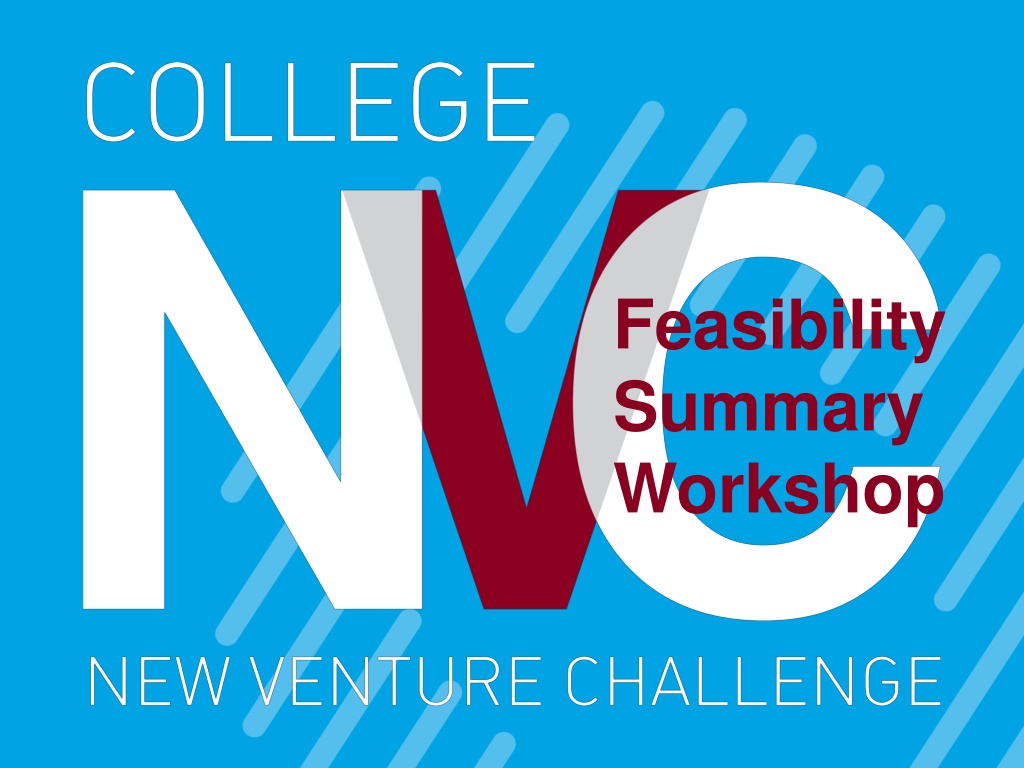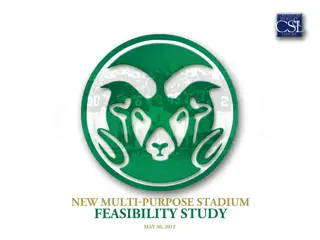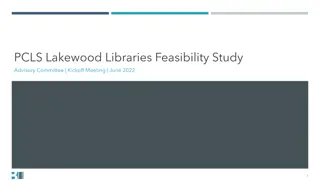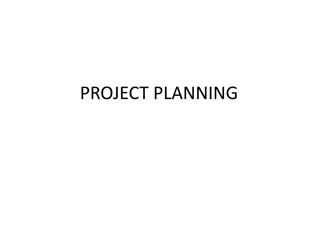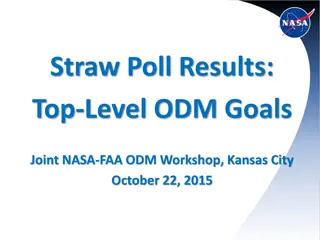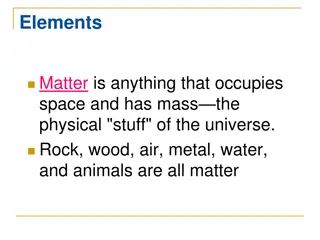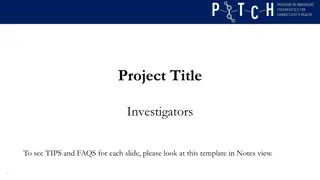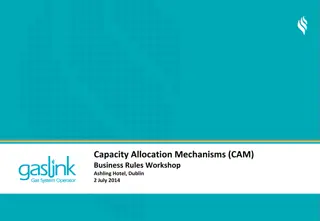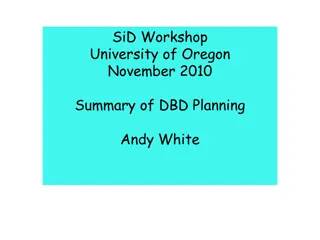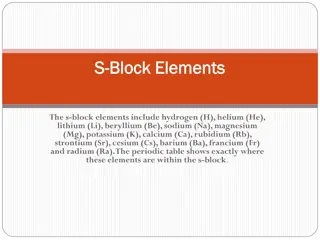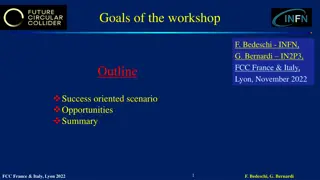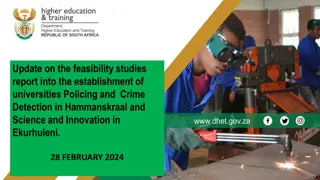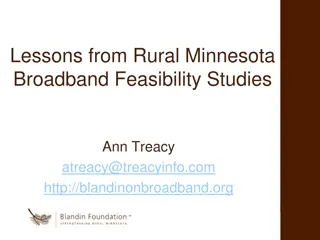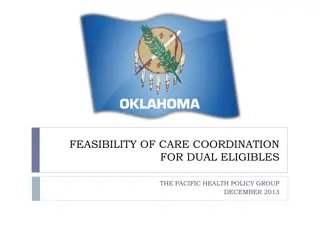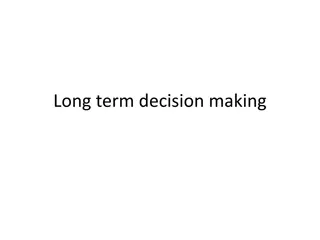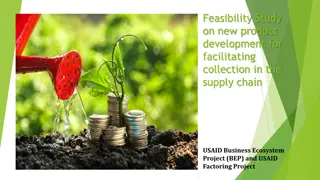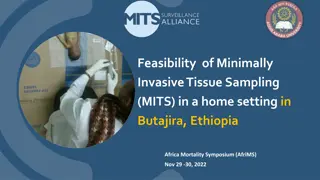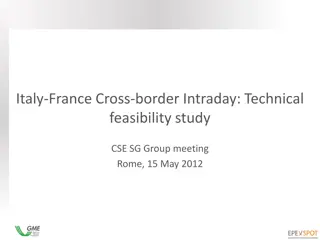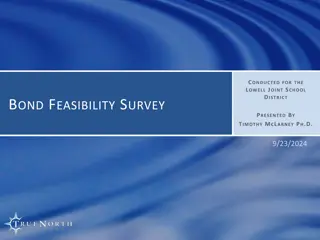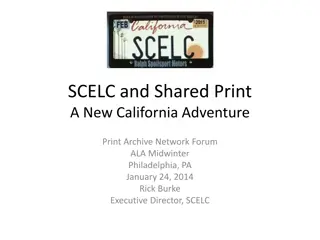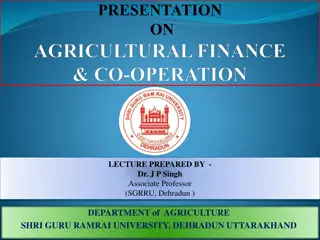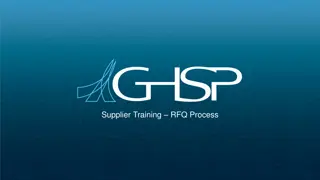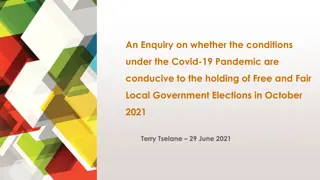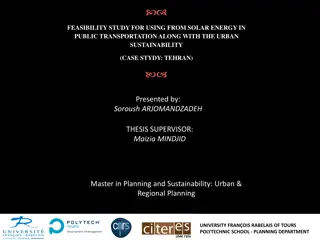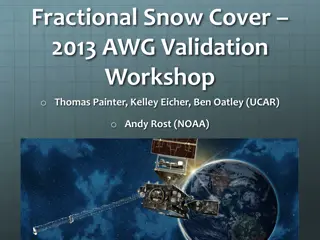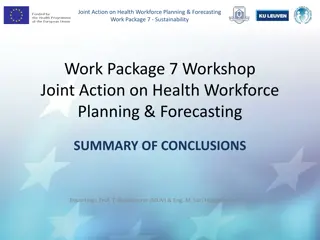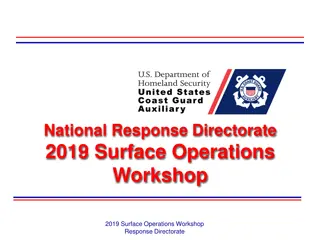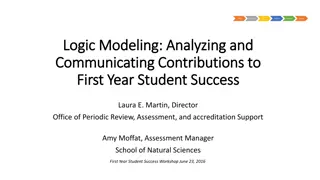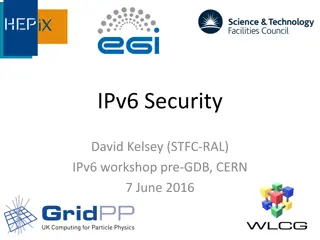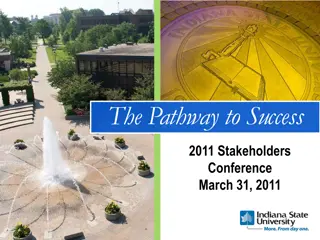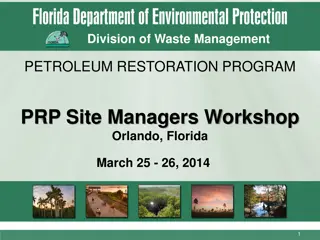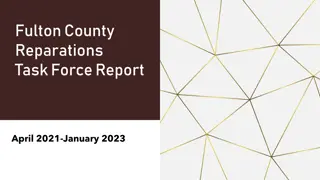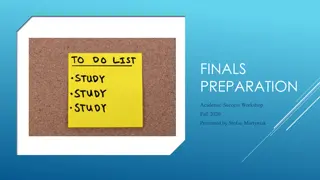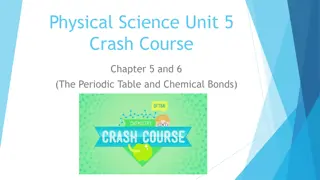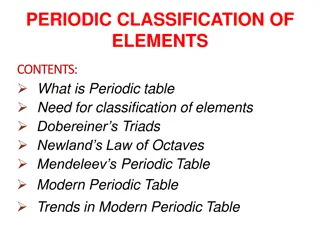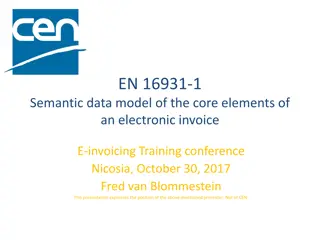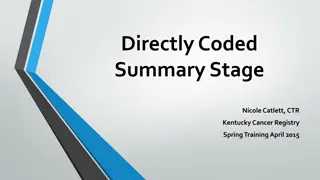Feasibility Summary Workshop: Key Elements for Success
In this workshop, participants will review the agenda, discussion on CNVC timeline, and dive into the key elements of a feasibility summary. The event includes upcoming deadlines, value proposition, customer segments, competition analysis, and intellectual property considerations for success.
Download Presentation

Please find below an Image/Link to download the presentation.
The content on the website is provided AS IS for your information and personal use only. It may not be sold, licensed, or shared on other websites without obtaining consent from the author. Download presentation by click this link. If you encounter any issues during the download, it is possible that the publisher has removed the file from their server.
E N D
Presentation Transcript
Feasibility Summary Workshop
Agenda Review CNVC Timeline Feasibility Summary: Key Elements Do s and Don ts Q&A
Upcoming Events and Deadlines Mission Driven Ventures Nov. 15 | 12-1 p.m. | Ida Noyes West Lounge Customer Discovery Nov. 16 | 12-1 p.m. | Ida Noyes West Lounge Feasibility Summary Deadline: Nov. 27 | 10 a.m. Notified of Acceptance byNov. 29 CNVC Team Pitches and Networking Nov. 30 | 4:30-6 p.m. | Harper Center 219
Key Elements of a Feasibility Summary
Value Proposition What are you building and for whom? Am I solving a customer s need or problem? Example 1 Example 2 The company has developed the SalivaSac , a proprietary semi-permeable membrane that enables the collection in saliva of biochemical markers below 12 kilodaltons. The company will focus on finding those applications which meet this criteria and where there is an advantage to collecting a non-invasive sample. The company s objective is to develop non-invasive medical diagnostic tests. The first application is for using a proprietary saliva collection device to measure glucose levels in diabetics.
Customer Segments Who are your customers? Who are the different groups of people or organizations you aim to reach and serve? How do you define your market? What is the potential market size?
Customer Segments Market Size Estimate
Customer Segments Customer Profile 29 years old Single City dweller $60-80K Income
Competition How will you win? Who are current players in the market? Who could be your competition in the future? What are your competitive (dis)advantages? How are you positioned with respect to competition? What barriers to entry will protect you? o IP, customer development process, etc.?
Intellectual Property Are there key differentiators/elements of your business worth protecting? Is it proprietary? Are there patents? Are there key milestones in terms of development or product testing? What are the technology risks?
Revenue Model How do you make money from each customer segment? What will the customer pay? How do you know? Costs to make, sell, & service Perceived Value Price
Operations What are the most important actions you take to operate and deliver your value proposition? Production, problem solving, platform/network? What assets are required by the business to deliver your value proposition? Physical, intellectual property, team, financial? What are the costs incurred by creating and delivering value, maintaining relationships, and generating revenue? Fixed and variable costs, economies of scale, etc.
Management Team Who makes up your management team? Advisors? Partners? Who are they? Why are they relevant for the business? How do you plan on filling gaps? Who are the vendors, strategic alliances, and joint ventures involved in executing your business?
Management Team Example 1 Frank Smith, our CTO, has extensive experience in managing and building data warehouses. He previously served as vice president in charge of Thompson Financial s database management systems and worked as a consulting manager with IBM for organizations building data warehouses. Frank received a BS in computer science from MIT and an MBA from Chicago Booth with a concentration in operations. Example 2 We currently are looking for a director of sales. We have identified several individuals in data/information companies also selling to the Fortune 500 companies, consulting firms, and investment firms that would be interested once we have secured our financing.
Progress to Date What have you done so far? How have you tested your assumptions? Milestones achieved Patents, trademarks, etc. Prototypes, Minimal Viable Products (MVPs), sales, customer research or testimonials, letters of intent, etc.
Business Risks What are you worried about? What do you plan to do about it?
Business Analogues Are there analogues in the industry or other industries that validate your business model? Who are they, and have they been successful? How are they valued, and how did they get funded? Have there been successful exits? Multiples? Have similar businesses failed? Why? (Look for corpses )
Social Ventures For social ventures, there are additional nuances to consider Are your customers different from your beneficiaries? What is your financial strategy? How will your venture create social impact?
Social Ventures: Customers vs. Beneficiaries Beneficiaries and customers may or may not be the same Same Similar Different BluFlame Ventures Provide inexpensive green-technology stoves in rural Ghana NHHH Indian hospital that subsidizes the poor through surplus from those who can afford their services Arzu Rugs Beneficiaries are Afghan women and their daughters; customers are US rug consumers
Social Ventures: Financial Strategy Financing strategy may be more complex than a traditional venture Describe your plan for financing in the early stages and in the long run Sources may include combinations of: Philanthropists Foundations Fees-for-service Other earned income Friends and family Government grants/contracts Social investors Personal resources Financial investors (debt or equity) Think about what makes your venture attractive to different financing sources
Social Ventures: Social Impact An explanation of how your venture will benefit society is an important part of the application. What is your theory of social impact? o How does your venture impact society? o Are you trying to solve for a market breakdown? o If you have a mission statement, this is where it belongs. o For many ideas, this will be covered in the value proposition of the core business model. o For ideas that look more like traditional for-profit ventures, a separate explanation may be useful. o Some idea about how you will measure social impact is a useful part of the feasibility study but not essential.
Peter Thiels: 7 Questions Every Business Must Answer Can you create breakthrough technology? Is now the right time to start your business? Are you starting with a big share of a small market? Do you have the right team? Do you have a way not just to create but to deliver your product? Will your market position be defensible in 10 or 20 years? Have you identified a secret opportunity that others don t see?
What Do VCs Actually Consider? Studied VC deal memoranda for 67 investments by 11 VCs. Top five reasons to invest: Market 69% Management 60% Strategy 54% Competition 33% Product and technology 30% Top five risks: Management 61% Strategy 51% Competition 40% Market 31% Product and technology 31%
Grubhub Example A website for finding and ordering from restaurants that deliver. Have to call every restaurant in city to get menu and ask if and where they deliver. Info is hard to collect. Market Not a huge market but large enough. Make money off online ordering. Acceptance Will customers buy? Useful for consumers. Key issue is whether you can get them economically. Restaurants follow once consumers are engaged. Present Value Why is it uniquely valuable now? First-mover advantage/network effect for consumers. Costly and time intensive to get menu/delivery info. Consumers have no reason to switch because restaurants pay.
Bump Example iPhone App to exchange contact info. Uses unique identification of two phones from GPS and Synchronicity of Bump. Acceptance by customers Consumers liked it/found it useful. Huge piece of luck when billionth iPhone App. Present value Network effect. But what is the Market? Industry? How do you make money?
Dos & Donts Avoid Clich s We have no competition. We are the low-cost provider. We only need a 5% market share. Our numbers are conservative. Avoid Acronyms Don t assume everyone reading your plan has your knowledge base. When you use an acronym, explain it the first time (TFT). No Autopilot Make sure the car has a driver. Someone should be the current CEO. OK to say you will find a permanent/better one later.
Dos & Donts Be Clear and Concise YES: Middleware for wireless networks NO: Develops and delivers an integrated suite of packaged applications for web and wireless deployment. Global enterprises use these applications to become more competitive and profitable by establishing and sustaining high-yield interactions and transactions with customers, suppliers, and employees.
Dos & Donts Capture Attention Typical VC will not read past the first page. Should answer the following questions in the first page: o What is the opportunity? o Why does anyone care? o How will it be achieved? o What is your unique differentiator?
Sponsors Thank you to our generous sponsors. Andrew Alper, AB 80, MBA 81 David Daigle, MBA 94 Immanuel Thangaraj, AB 92, MBA 93 10/7/2024 Footer 30
For more information, visit: www.chicagonvc.com
